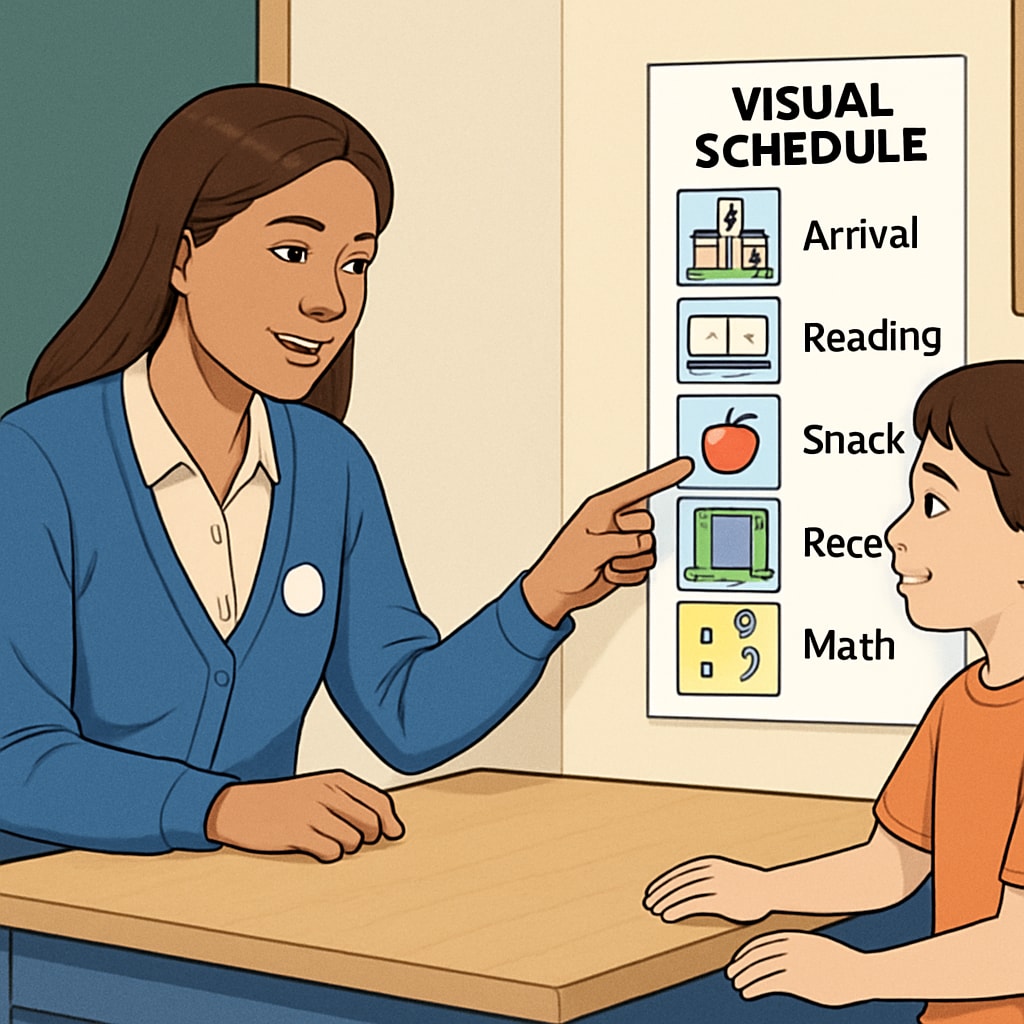Working in special education as a teaching assistant for children with autism spectrum disorder (ASD) is a role that combines compassion, patience, and expertise. This career path, while deeply rewarding, requires preparation and a clear understanding of the unique challenges and rewards it offers. In this article, we will explore how to effectively prepare for a school meeting or consultation, and discuss the key skills that can help you succeed in supporting children with autism in a special education setting.
Understanding the Role of a Teaching Assistant in Special Education
The role of a teaching assistant in special education revolves around providing individualized support to students with diverse learning needs. Specifically, when working with children on the autism spectrum, responsibilities may include:
- Assisting with communication and social interaction.
- Helping students manage sensory sensitivities.
- Supporting academic and behavioral goals outlined in Individualized Education Plans (IEPs).
- Collaborating with teachers and therapists to create a positive learning environment.
Understanding these responsibilities is the first step toward building the skills and mindset required to excel in this role.

Preparing for Your School Meeting or Consultation
Whether you are gearing up for an interview or your first consultation with a special education school, preparation is key. Here are some practical steps to help you get ready:
- Research the School: Learn about the school’s approach to special education, their programs, and any specific methods they use for supporting children with autism.
- Understand Autism Spectrum Disorder: Familiarize yourself with the characteristics of ASD, including communication challenges, sensory sensitivities, and repetitive behaviors. Websites like Autism Speaks offer comprehensive information.
- Review Common IEP Goals: These plans guide the educational approach for each student. Understanding typical goals can help you align with the school’s expectations.
- Prepare Questions: Show your interest by asking about the school’s teaching methods, classroom structure, and support resources.
By taking these steps, you can approach your meeting with confidence and demonstrate your commitment to supporting children with autism.
Key Skills and Mindsets for Success
To thrive as a teaching assistant in special education, you’ll need a combination of technical skills and soft skills. Here are some of the most important:
- Patience: Progress can take time, and students may face unique challenges each day.
- Empathy: Understanding the student’s perspective is essential for effective support and communication.
- Adaptability: No two days are the same in a special education environment. Being flexible is crucial.
- Strong Communication: You’ll need to communicate clearly with both students and the team of educators and therapists.
- Knowledge of Teaching Strategies: Familiarity with evidence-based practices like Applied Behavior Analysis (ABA) or visual schedules can be a great asset.
In addition to these skills, maintaining a positive and proactive attitude will go a long way in supporting the students’ growth and development.

Building a Career in Special Education
Becoming a teaching assistant for children with autism is not just a job—it’s a vocation that can make a profound difference in students’ lives. To build a successful career in this field, consider the following:
- Pursue Ongoing Education: Attend workshops or earn certifications in autism education or special needs support.
- Network with Professionals: Connect with other educators and specialists to share knowledge and strategies.
- Practice Self-Care: Supporting students with special needs can be emotionally demanding. Make time for your mental and physical well-being.
As a teaching assistant, you serve as a bridge between the students and their learning goals, helping them navigate challenges and celebrate achievements.
In conclusion, working in special education as a teaching assistant for children with autism is both challenging and rewarding. By preparing thoroughly for school meetings, developing essential skills, and fostering a positive mindset, you can succeed in this impactful role. For more resources, visit Britannica’s Guide on Autism.


